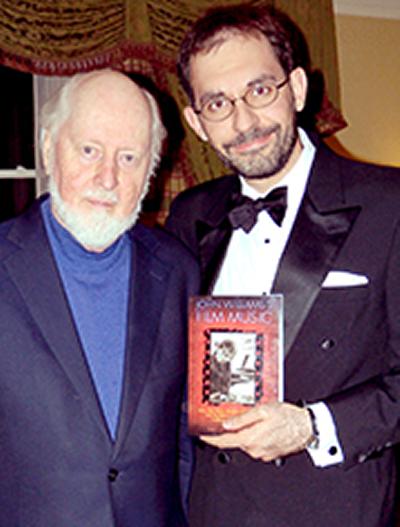'Williams changed film music culture'

Film composer John Williams has been a cultural leveller, bringing symphonic scores back to mass cinema audiences while elevating the status of film compositions in classical concerts, according to research by the University of Southampton's Dr Emilio Audissino.
Dr Audissino suggests that Williams subtly challenged film music conventions in the 1960s before massively restoring the sound of the classical Hollywood film music throughout the 1970s and 1980s.
In the book John Williams’s Film Music, published by the University of Wisconsin Press, Dr Audissino explains that John Williams began to break the mould in the sixties by adding old-fashioned symphonic scores to movies at a time when the film industry used pop soundtracks to supplement box-office takings with LP sales.
“Even in early works, Williams was showing a more classical-styled approach than his contemporaries,” says Dr Audissino. “I compared samples of works by Williams with films scored by the leading composer of the decade, Henry Mancini.
“By defining as precisely as possible the stylistic traits of the classical Hollywood music of the 1930s and 1940s and comparing their work, I found that classical traits were far more present in the Williams samples.”
The breakthrough moment for Williams, according to the author, was the 1975 blockbuster Jaws - the biggest budget movie to use a classical score since the heyday of classical Hollywood.
“At the time it was a risk to use a symphonic score, with no pop songs at all, in such a big budget movie and studio bosses were nervous about how it would go down with audiences,” says Dr Audissino, “Now of course the soundtrack is one of the most memorable in film history.”
As well as changing the perception of symphonic music in the film industry, Williams also changed the status of film scores in classical music concerts.
Dr Audissino reviewed archive footage, newspaper clippings and concert programmes to reconstruct the period of John Williams’s tenure of the Boston Pops Orchestra. “Film music used to be programmed in the last part of the concerts, traditionally devoted to orchestral versions of pop songs or Broadway show tunes,” says Emilio. “From the outset, Williams presented film music in the first part of the programme too, which was traditionally the realm of music from the classical concert repertoire.
“When presenting film music, Williams would retrieve the original versions, rather than pop arrangements. If these were unavailable, Williams would have the original orchestrations reconstructed, as he did with the song of Singin' in the Rain, whose reconstruction was commissioned to the Hollywood veteran Alexander Courage.”
On a recent tour of the States, Dr Audissino met with John Williams to present him with a copy of the book. He says: “I’ve had the extraordinary honour of meeting Maestro Williams on a number of occasions in the past years. He is Hollywood royalty, but does not behave like that at all; he is one of the most gracious and unpretentious gentlemen I have ever met.”